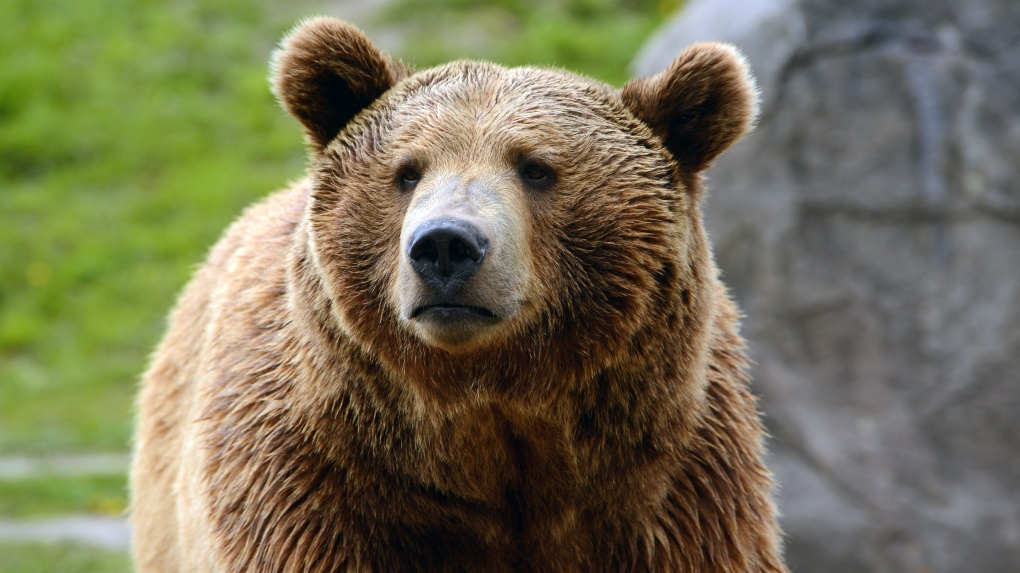Vast majority of B.C. residents still oppose hunting grizzlies for sport, survey finds
 This undated stock image shows a grizzly bear.(Credit: Shutterstock)
This undated stock image shows a grizzly bear.(Credit: Shutterstock)
As the B.C. government seeks feedback on its Grizzly Bear Stewardship Framework, a new poll suggests the vast majority of residents still oppose hunting the animals for sport.
The Research Co. survey – which was conducted in partnership with Pacific Wild Alliance, a non-profit society focused on wildlife conservation – found 84 per cent of British Columbians disapprove of trophy hunting grizzly bears, which has been banned in the province since 2017.
Company president Mario Canseco said there was also broad support for outlawing the sport hunting of grizzlies permanently, including among at least two-thirds of voters who cast ballots for the B.C. NDP, Green Party or B.C. Liberals in the last election.
"The notion of enshrining the ban on grizzly bear trophy hunting in legislation is popular across the political spectrum," Canseco said in a news release.
The government is currently conducting its own survey on its Grizzly Bear Stewardship Framework, which is available to read online and is intended to assist with the creation of regional stewardship plans.
According to the document, the ban on trophy hunting was "not specifically or directly in response to a conservation concern," but instead was a "reflection of many British Columbians' ethical or moral opposition towards grizzly bear hunting."
The framework also notes there are some First Nations that have hunted grizzlies since “time immemorial,” and continue to exercise their right to do so for food, social and ceremonial purposes.
On the potential for allowing licensed grizzly hunting in B.C. again, the framework states: "It would require a more detailed and focused review of Indigenous and non-Indigenous perspectives, science, and policy (including population objectives, cumulative effects, and threat mitigation) than is contemplated in this document."
Karen McAllister, executive director of the Pacific Wild Alliance, argued that allowing regional and local officials to make grizzly management decisions using the framework would be a mistake.
"Grizzly bears, like countless other transboundary species, need a coordinated conservation strategy at the provincial and national level working with Indigenous governments," McAllister said in a statement.
The Research Co. survey was conducted online from Sept. 23-25 among 1,000 adults in British Columbia, with its data statistically weighted according to Canadian census figures for age, gender and region of the province.
The results carry a margin of error of plus or minus 3.1 percentage points, 19 times out of 20.
CTVNews.ca Top Stories

Joe Biden pardons son Hunter Biden of gun, tax charges, despite promising not to
U.S. President Joe Biden announced Sunday that he pardoned his son Hunter Biden on gun, tax charges, despite previous promises that he would not do so.
Canada Post presents union with 'framework' to reach deal as strike continues
Canada Post has presented the union representing some 55,000 striking postal workers with a framework to reach negotiated agreements, the corporation said.
'Devastating': Missing Surrey, B.C. teen found dead, family says
The family of a missing 18-year-old, who was last seen in Surrey over a month ago, says there has been a tragic end to the search.
The best tips to prepare your car for the winter
Slippery or snow-covered roads, reduced visibility and bitter cold are all conditions that can make driving difficult and even dangerous during cold weather months. CAA spoke with CTV Morning Live this week on some of the best ways you can winterize your car.
PM Trudeau 'surprised' provinces unanimous on accelerated defence spending: Ford
Ontario Premier Doug Ford says his fellow provincial leaders are united in pushing for Canada to meet its NATO defence spending targets ahead of schedule, and that Prime Minister Justin Trudeau was "surprised" to hear it.
Stellantis CEO resigns as carmaker sales continue to slump
Stellantis CEO Carlos Tavares is stepping down after nearly four years in the top spot of the automaker, which owns car brands like Jeep, Citroën and Ram, amid an ongoing struggle with slumping sales.
'Wicked' star Marissa Bode speaks out against 'harmful' ableist comments made about her character
'Wicked' actress Marissa Bode posted a video on TikTok asking for kindness after receiving ableist comments on social media.
Poilievre calls for asylum seeker cap, border plan as U.S. tariff threat looms
Conservative Leader Pierre Poilievre has demanded the federal government present a plan before Parliament to beef up border security as U.S. president-elect Donald Trump threatens to impose stiff tariffs on Canada.
Emergency crews battle large fire at Kitchener, Ont. townhouse complex
Waterloo Regional Police say Kingsway Drive will remain closed as emergency crews continue to battle a large blaze at a townhouse complex.

































